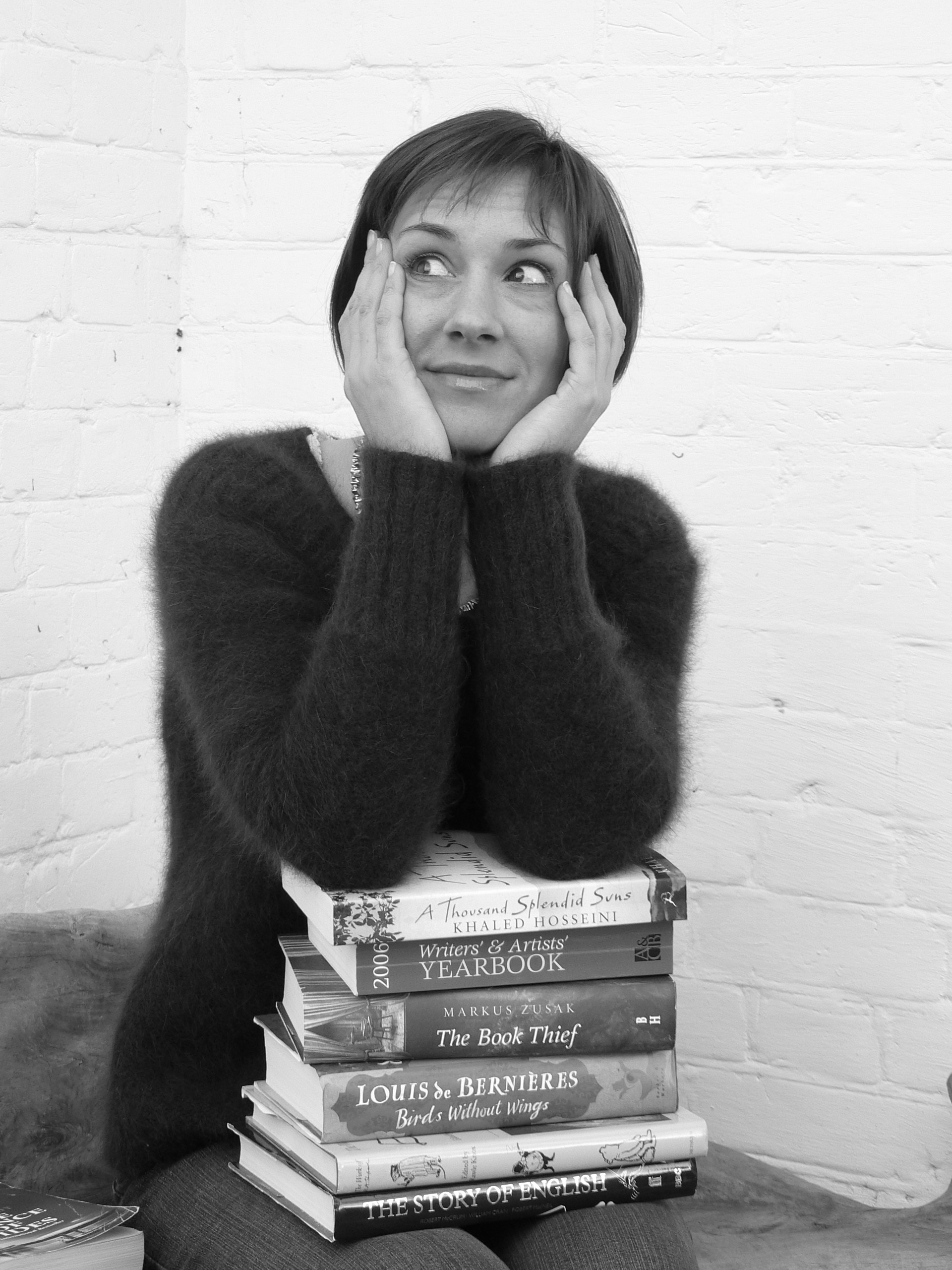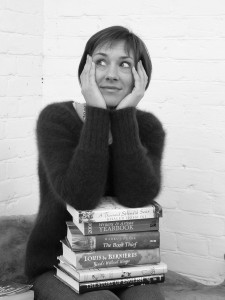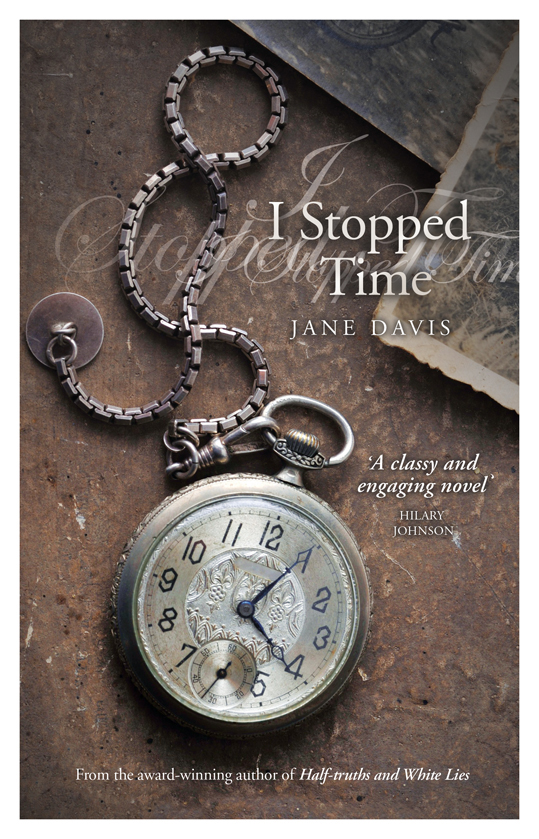An Interview with Jane Davis: Author
Sylvia: Welcome Jane. Please give our readers an introduction of yourself and a little about your book.
Jane: Hello Sylvia. Thank you for the interview. My name is Jane Davis and I received a strict Victorian upbringing in 1970’s suburbia, the middle child of five born. And as one of five I have a keen interest in how your position in the family influences character and personality.
My father was a policeman who worked shifts, but my mother came from a musical family. Her father was a composer and her brothers went on to become flautists in the London Philharmonic Orchestra and the London Symphony orchestra. She was called Christine and her brother was called Christopher and, for a while, they both used the professional name, Chris Taylor. Her brother, the more ruthless of the two, stole jobs that should have come her way, but, a recorder player, she became something of an expert in Tudor music and it is her you hear playing on the infamous Finger of Fudge advert. My mother also taught music at home. Combined with the fact that, among the children we had a guitar player, a violin player, a flautist, an oboe player and a trumpet player, our house was always a noisy place. We were put through the torture of practical music exams and forced onto the stage from an early age, which resulted in a life-long fear of exams and stage fright. I found refuge in reading, one of the few indulgences that allows you time for legitimate ‘time out’. I was a reasonable student but I realised exams were not for me. The day that my friends returned to the sixth-form college, I walked straight into my first job in insurance. I was lucky in that my second job proved to be a company I could grow with and I worked my way up from claims clerk to deputy managing director.
In October 2008, after writing as a hobby for a number of years, my novel, Half-truths and White Lies, was selected as the winning entry of the Daily Mail First Novel Award and was published by Black Swan in April 2009.
Sylvia: Very talented family. I can imagine all the noise in your house as a kid. I am sure you had some wonderful years. What inspired you to write your first book?
Jane: I watched a programme last year in which the chef Rick Stein described how he came to his profession as a food enthusiast. In the same way, I came to writing as an enthusiastic reader and a lover of words. If we are to believe Sir Terry Pratchett, becoming a writer is a process of osmosis. You simply read until you overflow. I think that is one of the reasons it is so worrying when I hear people tell me that children don’t read for pleasure – where are tomorrow’s writers going to come from?
My specific inspiration is still difficult to talk about but I will do my best. I was attending the christening of a friend’s child in the Catholic Church I used to attend as a child. It was one of those conveyor belt christenings where several children are baptised at the same time and the priest can barely remember the names of the children. Sitting in the row in front of me with four boys in height-descending order – and with the Nike emblem shaved into the backs of their heads – was the man who had been charged with the manslaughter of a school friend in 1985. Perhaps not quite a pillar of the community, there he was, not only with his freedom but with a growing family. The emotion from that incident fueled an intense period of writing.
Sylvia: Is there a message in your novel that you want readers to grasp?
Jane: The one thing I have learned from attending book clubs and reading reviews is how much the reader brings to the novel. Whatever my original agenda may have been, they lend it their experience, their passions and their interpretation. Readers have given me real insights. Sometimes, I admit, I am asked questions so long after the writing has taken place that I draw on their explanations. My first American reviewer credited ‘I Stopped Time’ with being a great feminist novel. I had wanted to create a character in Lottie Pye who had far more modern attitudes than her son, but feminist? Now I’m thinking, from a marketing perspective that could have legs…
Sylvia: What is more difficult: to write the first or the last sentence?
Jane: I heard John Irving speak recently and he says that he will not start writing until he has the last sentence. He had the idea for his latest novel over twenty years ago, but it took him all this time to find the last sentence. I say just start. You will spend a lot of time editing your manuscript. The perfect first sentence might not occur to you until you know how the story develops, so don’t fret over it. Certainly, the first sentence has to grip the reader. The most difficult thing I find to know is when you have arrived at the end.
Sylvia: Do you have any favorite authors or books that you prefer?
Jane: Apart from John Irving and Thomas Hardy, I love Louise de Berniers, Joanne Harris and E. Annie Proulx. My current favorite novel is The Book Thief by Marcus Zuzak. The author tackles extremely sensitive subject matter with originality and simplicity, which is perfection. I got to the very end before I learned that he is the author of several award winning children’s books, and it explained much about his writing style and his deep understanding of his main characters.
I find myself coming back time and time again to Tess of the D’Urbervilles by Thomas Hardy. It stays relevant and contains the most perfectly flawed heroine; innocent, naive wronged. And, ultimately, deadly. I feel that I catch glimpses of the England that he describes when I am out walking in the mountains.
The Prince of Tides by Pat Barker is a difficult, rich and rewarding read. Don’t be put off by the film which focused on everything that is romantic in the book, detouring neatly round the more shocking elements of the story line, leaving very two-dimensional characters.
My favorite author is John Irving and it would be difficult to include only one of his novels in a shortlist. I am torn between Cider House Rules and A Prayer for Owen Meany. Both are life-changing. I particularly love John Irving’s use of themes and challenging viewpoints. I have never been to New England, but I feel that I know the area well through his writing.
E. Annie Proulx wrote the most extraordinary main character in Quoyle in “The Shipping News” but her use of language is so full of warmth and humor and sadness that we cannot help but love him.
Finally, I love Martin Davies’ novel, The Unicorn Road, which takes the reader on an epic journey.
Sylvia: Great book choices! Do you have any advice for aspiring writers?
Jane: Get started. Sometimes a novel starts with one small idea. You don’t have to work out what is going to happen at the end before you begin. Get the characters right and the rest will follow.
Be disciplined. When I was working full-time, I found it useful to set aside specific periods of time for writing. I stuck to my schedule and aimed to write one chapter a week. In a year’s time, I had a first draft. I believe that the difference between success and failure can be as simple as sticking to something and finishing it.
Take the advice that is offered. You may be at the top of your profession at the moment but the chances are that, like me, you will know very little about the world of publishing. If two agents take the time to write to you in person and express the opinion that your work is unmarketable – particularly if they have been kind enough to compliment you on your writing ability – it is unlikely that both are wrong!
Finally, read as much as you can. Keep an eye on the trends and what is selling. Unless you have written something brilliant and original enough to start a new trend, your work will need to sit neatly with what else is out there.
Sylvia: What marketing techniques have you used to sell your books and which ones have been most successful?
Jane: It depends how you qualify success. For some authors, it may simply be knowing that their writing is being read and enjoyed, which I measure by reviews and direct feedback. At the moment ‘I Stopped Time’ has constant 5-star reviews in the UK, which is very humbling. If you measure success purely in monetary terms, you may be disappointed. Sadly, the written word, together with other art-forms, has been devalued. With so many downloads available free or for less than 99p, and with supermarket chains discounting books, readers are far less willing to pay the full face value.
On release, reviews are critical. Since word of mouth is what really sells books, I signed up to the KDP Direct scheme for my latest e-book releases. This enables authors to give away books for 5 days in any 90-day period. The great news for authors is that social media makes it easier to reach your audience than ever before, and readers want that personal contact. It is difficult to tell which avenues have the most impact. I blog on my own website, I guest blog, I am on Facebook, I tweet, I have a Pinterest account (although few followers). I have given talks at literary and art festivals, bookshops and libraries. I have bookmarks made up which I give away on trains and station libraries. I am told that people have to see the same information six times before they make a decision to buy. This means you can’t afford to become complacent or to discount any potential method of reaching your audience.
Sylvia: Great information! I especially agree that you must always be marketing, whether you are selling a book or running a business. Why should we buy your books?
Jane: I write about a wide range of subjects including family secrets, genealogy, photography, the First World War, near-death experience and religion, but I always try to be honest and authentic. Joanne Harris described Half-truths and White Lies as ‘A story of secrets, lies, grief and, ultimately, redemption, charmingly handled by this very promising new writer.’ That could equally be applied to any of my writing. I am going to let Mimi, one of my elderly reviewers, have the last word. She moved me to tears by writing, ‘I deeply regret the loss of my reading buddy as I would have liked to have recommended Jane’s books to her.’
Sylvia: Is there a special place that you prefer when you write?
Jane: On my writing days, I work at home, using the dining room table as a desk. My break is a walk round the local park, which was once a favorite hunting ground of King Henry VIII. Exercise is a good way to get blood flowing to the brain and some of my best ideas have come from my walks.
Sylvia: What projects are you currently working on?
Jane: I am finalizing the proofs for the paperback versions of ‘I Stopped Time’ and ‘These Fragile Things.’ Yesterday I read about Gaiman’s law (coined by the author Neil Gaiman) who says that the minute an author opens a printed copy of his new book he will zone in on the one typo in it.
Sylvia: Congratulations on your upcoming book. What is your POWER WORD? Why this word?
Jane: My word is SERENDIPITY! On Saturday I was talking to my hairdresser about the perils of proof-reading your own writing when the lady in the chair next to me said that she was an out of work copy-editor who devours books and would love to help out. Actually, my whole route to publication comes down to that one word. I only found out about the Daily Mail First Novel Award by complete chance. I attended the Winchester Writer’s Conference for the first time in June 2007. There were many different lectures I could have chosen, but I chose one given by Jack Sheffield of Teacher fame and a very nice lady from Transworld, whose name I forget. She urged everyone with a finished manuscript to submit it, promising that it would be read in its entirety. All unpublished writers struggle with finding professionals who are prepared to read their work. For me, that was the incentive to enter. The closing date for entries was only two days later, so it was a case of getting it to the Post Office as soon as it opened and praying it would reach them in time.
The timing of the announcement was absolutely perfect. I had left my job in September, gone on holiday for a week, and three weeks later the honeymoon period was well and truly over. Every time I turned on the television there was talk of financial doom and gloom. I began to worry that leaving a secure job had been a terrible mistake. I got the call from Transworld when I was at home on my own and, because I was alone, I wasn’t quite sure how to react. I had no one to say, ‘Did that actually just happen?’ I tried to call my partner but he was in a meeting. I spoke to my mother and to a friend, then I emailed just about everyone in my address book. My mother and friend seemed to have got to most people first. It was two days before my 41st birthday. Not a bad birthday present!
Sylvia: What a great power word and it describes your experience. Please share your social media and book contact information.
“Shallow men believe in luck or in circumstance. Strong men believe in cause and effect.” Ralph Waldo Emerson
Now that’s SERENDIPITY!
Jane: Sure, here goes:
- Website: www.jane-davis.co.uk
- Facebook: http://www.facebook.com/#!/jane.davis.54966
- Twitter: https://twitter.com/janerossdale
- Pinterest: http://pinterest.com/janeeleanordavi/

Sylvia Browder is CEO of Specialty Home Services LLC, a Home Improvement Company; a Small Business Consultant at Browder Consulting Group, a startup consultancy firm to help women with startup assistance, marketing, website and graphic design work and other support services. In addition, she has co-authored several published books; publisher of ‘Sylvia Browder’s Blog for Women Entrepreneurs’ a lifestyle blog; and publisher of ShopSpendBlack.com Business Directory & Blog platform created to help consumers find black owned businesses in a searchable format. In her spare time, she enjoys spending time with her husband of 30 years; 5 adult children and 5 grandchildren; church; friends and motorcycle riding.



















